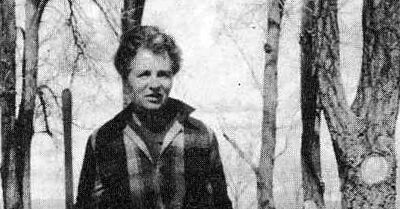Victor Vifquain (1836-1904), a Nebraska adventurer, political figure, newspaper owner, and Civil War hero, was also influential in the settlement of the Republican Valley. In the fall of 1869 he and a group of friends set out from Camden, Seward County, to hunt buffalo along the Republican River south of Fort Kearny.
Victor Vifquain
His letter about the trip appeared in The Nebraska State Journal of Lincoln on September 25, 1869:
“We left Camden on the morning of the 25th of August [1869], and arrived at Kearney on Friday, the 27th in the morning. . . .
We camped for dinner at a place called the Pond, some eighteen miles south and a little west of Kearney. The boys were getting anxious for buffaloes, but so far, nothing but great numbers of antelope were seen. We continued to move south of south-west after dinner and by four o’clock we made the breaks of Turkey Creek, one of the splendid little streams which are tributary to the Republican. Traveling a half a mile or better, ahead of the columns, I perceived two buffaloes in the first ravine I came to and I moved back to the train for the boys to try their hand at buffalo killing. A chase was soon begun, but it was fruitless of meat; and the only satisfaction for the men with the wagons was the beautiful spectacle of the hunters running over the horrible breaks of the Republican at a break-neck speed; right onto the buffaloes, and then blazing away with their revolvers. But the hides are thick, and it takes some shooting to learn to kill a buffalo. . . .
“Next morning a buffalo was shot, almost in camp, on the other side of the creek by three riflemen. Each team supplied itself with the needful and away we went down Turkey, following one of the most extraordinary as well as romantic natural routes, surrounded by buffaloes all the time, and after killing one more of them that was too daring and slaughtering one antelope that was too confident we made the mouth of Turkey on the Republican, by 1 P.M. on Sunday, the second [of September].”
The group bagged more game–antelope and elk, as well as buffalo. They returned to Kearney on September 7, 1869. Vifquain reported that the most unfortunate incidents of the trip were the loss of 1,200 pounds of elk meat due to spoilage and the death of a “poor and slow” horse named Congress.



